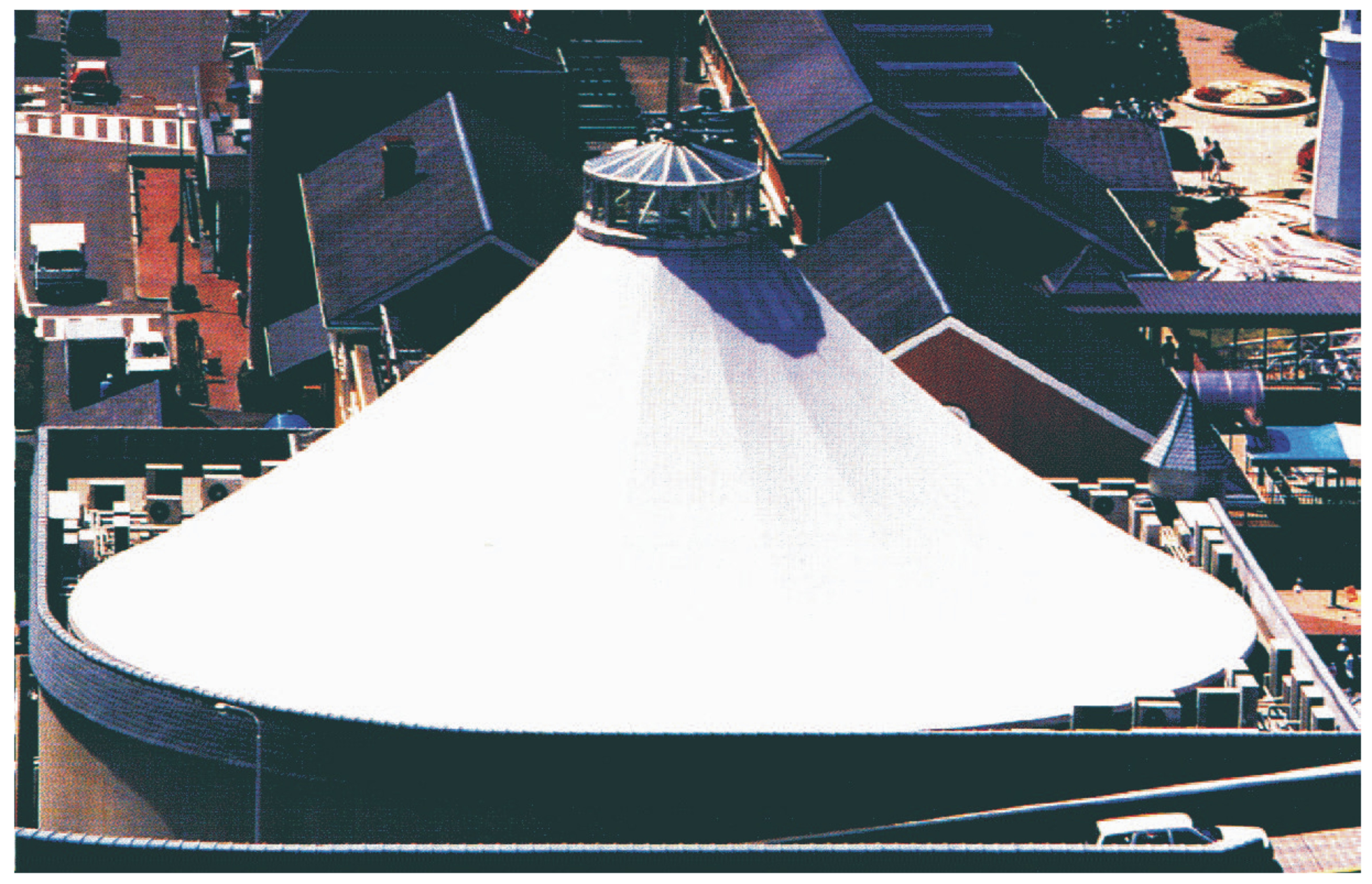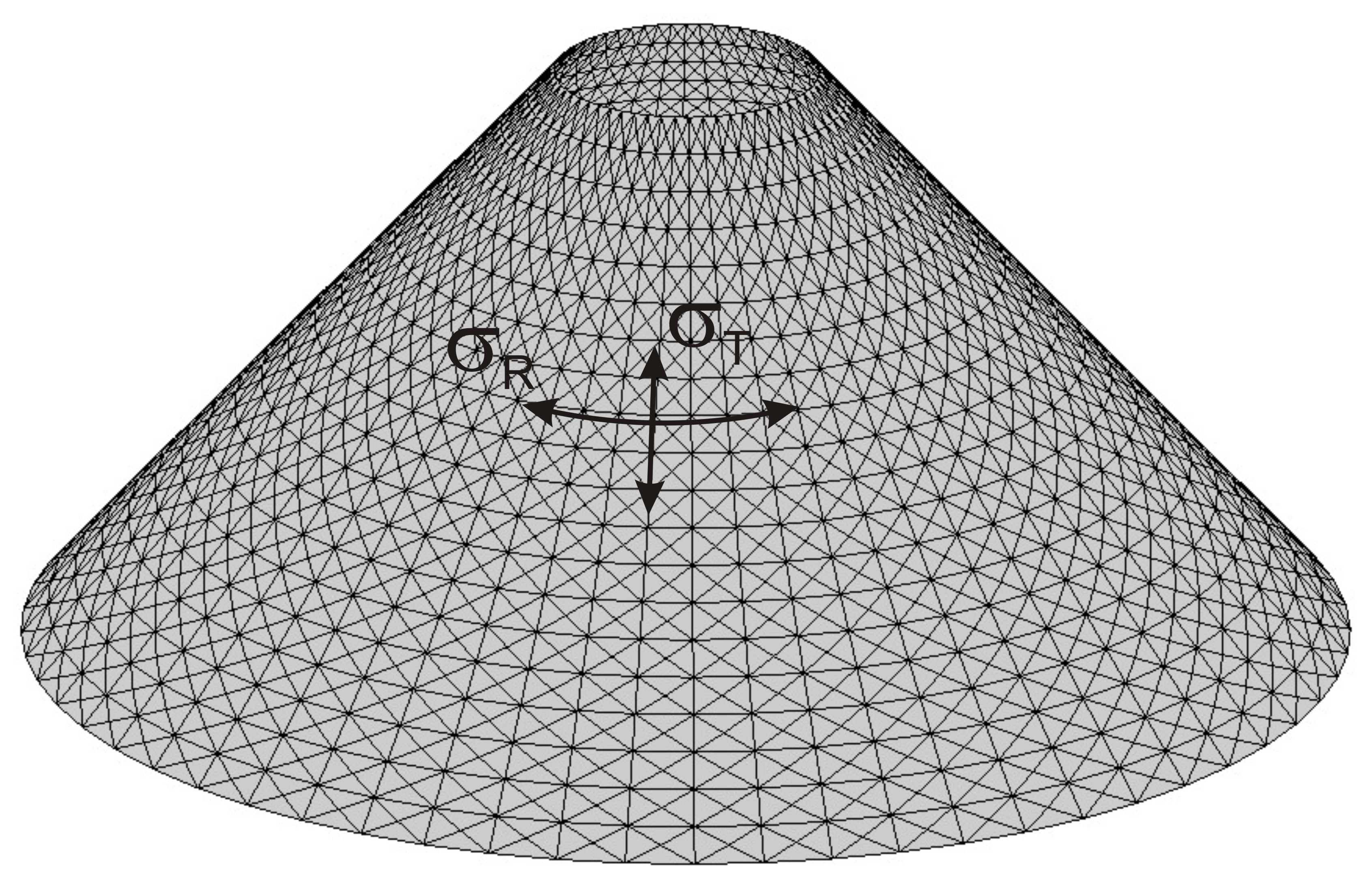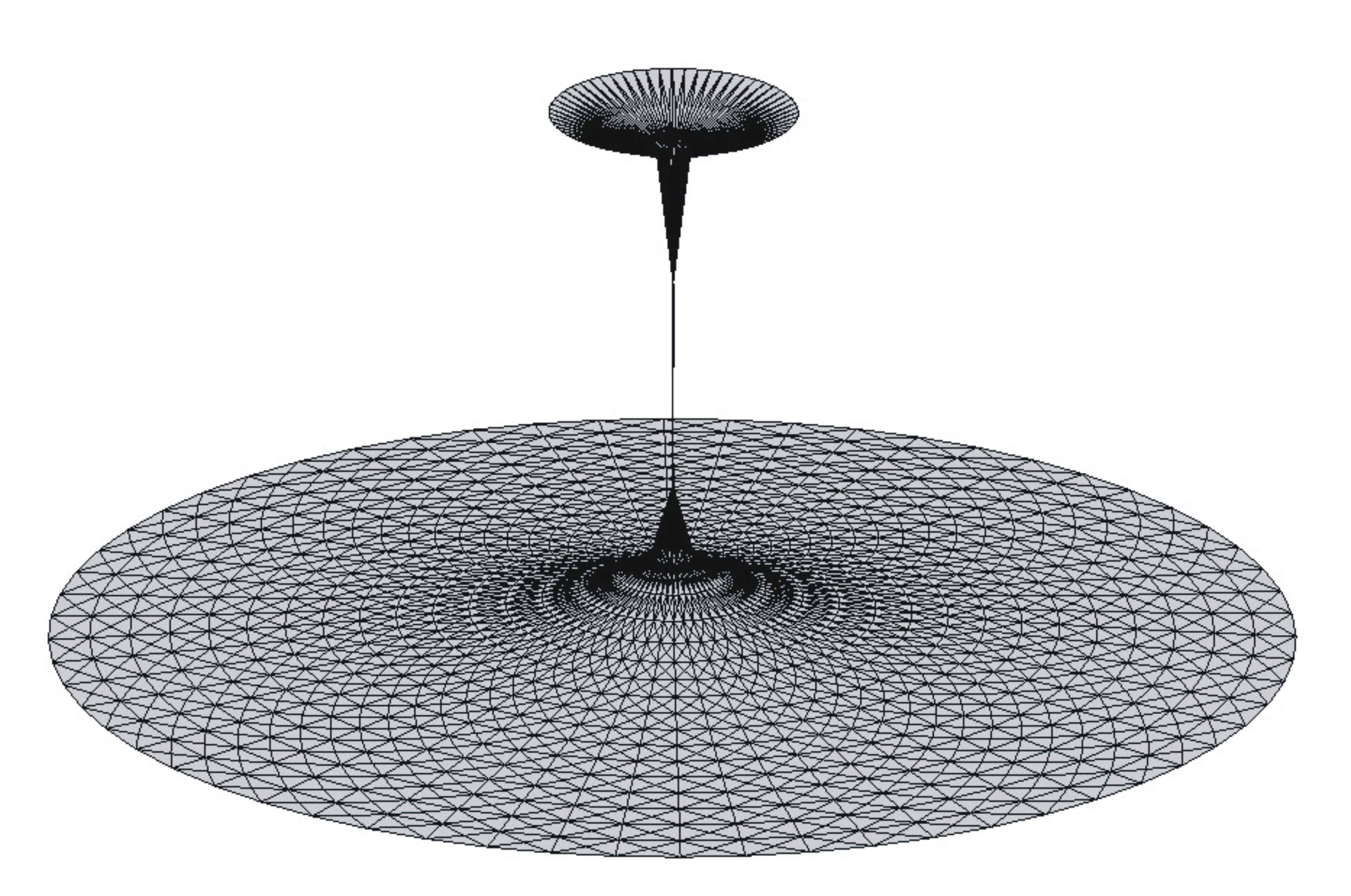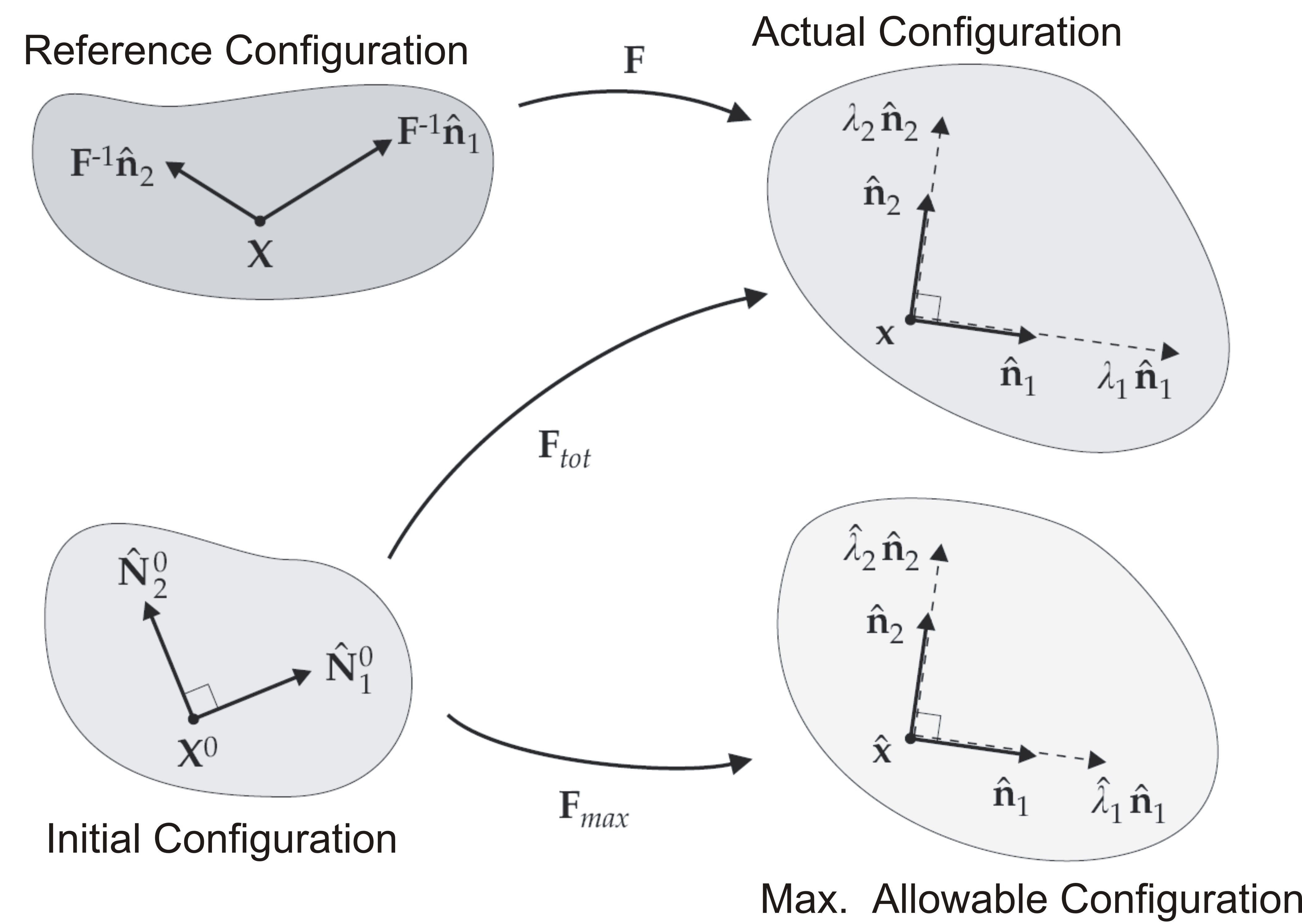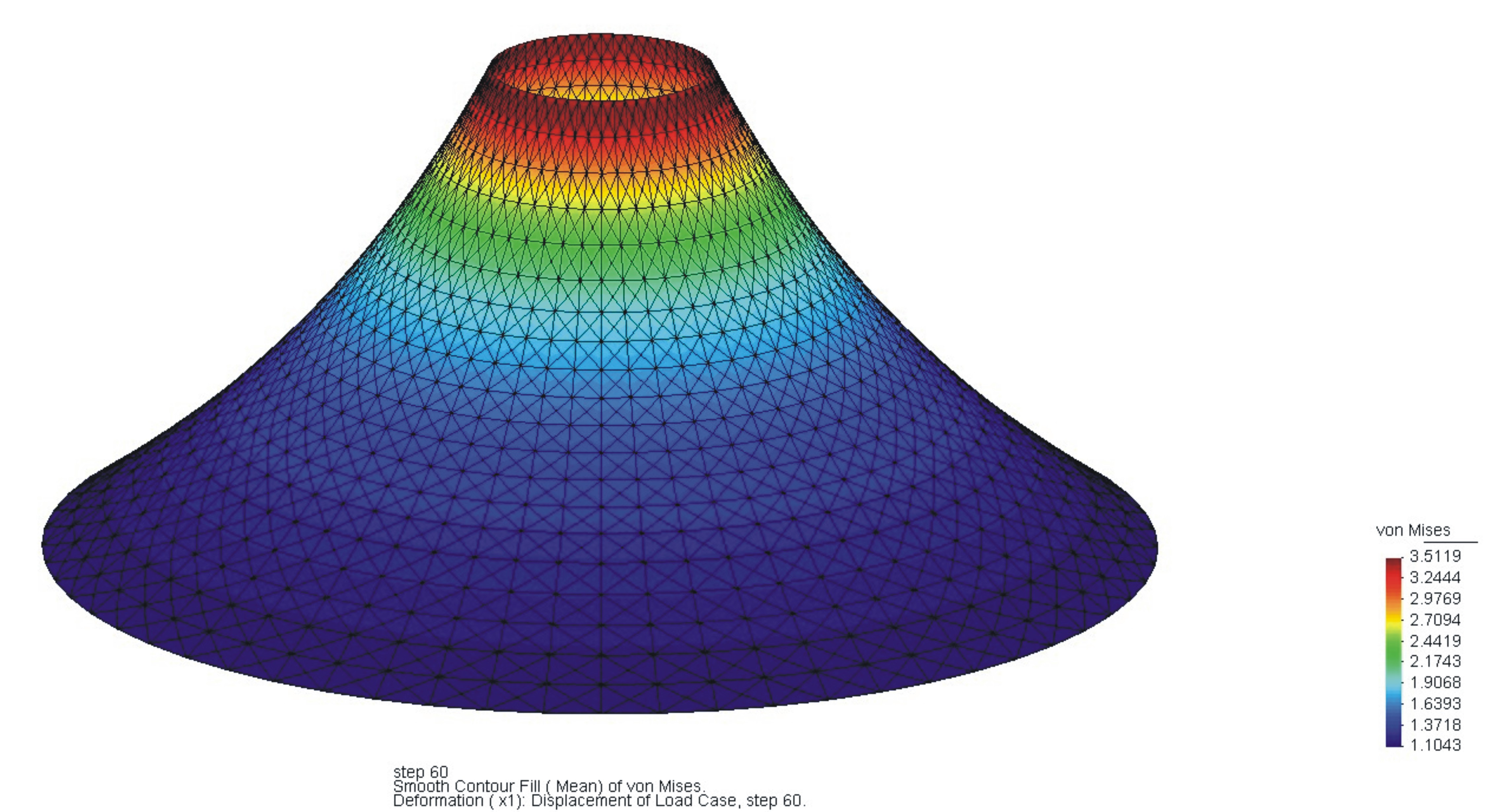Users:Form Finding/Discussion of the Prestress State
| (2 intermediate revisions by 2 users not shown) | |||
| Line 1: | Line 1: | ||
| − | The main value in the ''URS'' is the prestress state. If the prestress | + | The main value in the ''URS'' is the prestress state. If the prestress does not match the given problem there is no physical solution. So it can be seen, that the problem of finding the right prestress state is the main difficulty in the ''URS''. For many surfaces an isotropic prestress state (σ<sub>11</sub> = σ<sub>22</sub> and σ<sub>12</sub>=0) is valid. But there are surfaces where an isotropic prestress state does not fit to the physics. The most popular kind of surface where an isotropic prestress state does not lead to a solution is the ''Chinese Hat'' (see figure below<ref name="Ish95">Ishii, K.: Membrane structures in Japan, SPS Publishing Company, Tokyo, 1995</ref>). |
[[File:Chinese hat.jpg|400px|up|Chinese hat]] | [[File:Chinese hat.jpg|400px|up|Chinese hat]] | ||
| − | In figure below the definition of the stress | + | In the figure below the definition of the stress directions of the chinese hat are shown. |
[[File:Directions chinese hat.jpg|400px|up|Directions chinese hat]] | [[File:Directions chinese hat.jpg|400px|up|Directions chinese hat]] | ||
| − | By using an isotropic stess state the | + | By using an isotropic stess state the non physical solution for the ''Chinese Hat'' can be seen in figure below. |
[[File:Iso chinese hat.jpg|400px|up|Iso chinese hat]] | [[File:Iso chinese hat.jpg|400px|up|Iso chinese hat]] | ||
| − | To enable the ''form finding'' to find the physical solution for | + | To enable the ''form finding'' to find the physical solution for these kinds of structures, the possibility of stress adaption is used. By controlling the element distortion an adaption of the prestress in each Gauss point is possible. Herein the element distortion is controlled w.r.t. the principal stretch of an element (see figure below). |
[[File:Principal directions.jpg|400px|up|Principal directions]] | [[File:Principal directions.jpg|400px|up|Principal directions]] | ||
| − | In the distortion control scheme a maximum allowable configuration is defined. That means, | + | In the distortion control scheme a maximum allowable configuration is defined. That means, a maximum of displacement is allowed with a maximum deformation gradient '''F'''<sub>max</sub>. This configuration is the maximum allowable one. During the ''form finding'' process the actual configuration is compared with the maximum allowable one. If the distortion is too large, the prestress will be modified in a way that keeps the maximum of distortion within the allowable values. With this control scheme the ''Chinese Hat'' is possible to be controled such that a physically meaningful solution is achieved (see figure below). But it should be noticed, that the final stress state is not identical to the chosen (or prescribed) one. Due to the choice of λ_<sub>max</sub> the stress will be more or less different from the chosen one. |
[[File:Solution chinese hat.jpg|400px|up|Solution chinese hat]] | [[File:Solution chinese hat.jpg|400px|up|Solution chinese hat]] | ||
| + | For a more detailed discussion, refer also to <ref name=Lin2009">Linhard, J.: Numerisch-mechanische Betrachtung des Entwurfsprozesses von Membrantragwerken, Lehrstuhl für Statik, Technische Universität München, 2009</ref> | ||
| + | and <ref name="Die14">Dieringer, F.: Numerical Methods for the Design and Analysis of Tensile Structures, Lehrstuhl für Statik, Technische Universität München, 2014</ref>. | ||
== References == | == References == | ||
<references/> | <references/> | ||
Latest revision as of 14:20, 20 March 2017
The main value in the URS is the prestress state. If the prestress does not match the given problem there is no physical solution. So it can be seen, that the problem of finding the right prestress state is the main difficulty in the URS. For many surfaces an isotropic prestress state (σ11 = σ22 and σ12=0) is valid. But there are surfaces where an isotropic prestress state does not fit to the physics. The most popular kind of surface where an isotropic prestress state does not lead to a solution is the Chinese Hat (see figure below[1]).
In the figure below the definition of the stress directions of the chinese hat are shown.
By using an isotropic stess state the non physical solution for the Chinese Hat can be seen in figure below.
To enable the form finding to find the physical solution for these kinds of structures, the possibility of stress adaption is used. By controlling the element distortion an adaption of the prestress in each Gauss point is possible. Herein the element distortion is controlled w.r.t. the principal stretch of an element (see figure below).
In the distortion control scheme a maximum allowable configuration is defined. That means, a maximum of displacement is allowed with a maximum deformation gradient Fmax. This configuration is the maximum allowable one. During the form finding process the actual configuration is compared with the maximum allowable one. If the distortion is too large, the prestress will be modified in a way that keeps the maximum of distortion within the allowable values. With this control scheme the Chinese Hat is possible to be controled such that a physically meaningful solution is achieved (see figure below). But it should be noticed, that the final stress state is not identical to the chosen (or prescribed) one. Due to the choice of λ_max the stress will be more or less different from the chosen one.
For a more detailed discussion, refer also to [2] and [3].
References
- ↑ Ishii, K.: Membrane structures in Japan, SPS Publishing Company, Tokyo, 1995
- ↑ Linhard, J.: Numerisch-mechanische Betrachtung des Entwurfsprozesses von Membrantragwerken, Lehrstuhl für Statik, Technische Universität München, 2009
- ↑ Dieringer, F.: Numerical Methods for the Design and Analysis of Tensile Structures, Lehrstuhl für Statik, Technische Universität München, 2014
| Whos here now: Members 0 Guests 0 Bots & Crawlers 1 |
